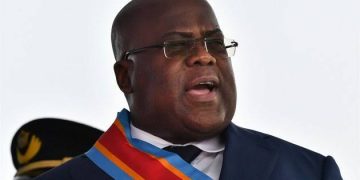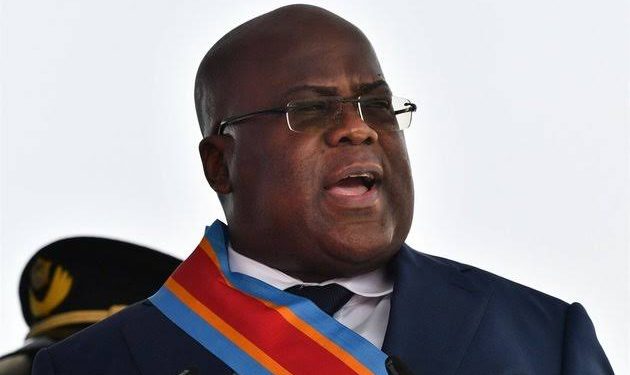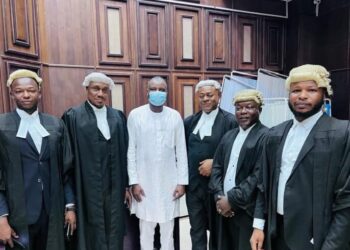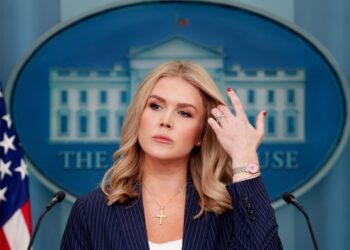By John Ikani
DR Congo’s President, Felix Tshisekedi has thrown his hat into the ring for a second term, adding his name to a long list of presidential hopefuls, including heavyweight opposition figures and a Nobel Peace Prize laureate.
The vast and impoverished central African nation, home to around 100 million people, is gearing up for parliamentary and presidential elections on December 20.
In the capital Kinshasa, Tshisekedi officially submitted his candidacy for another five-year stint in office. However, he’s not alone in the race, with over a dozen opposition candidates vying for the top spot. Yet, unity within the opposition remains elusive.
The incumbent president, aged 60, appears to have a solid chance of securing another term, given his strategic alliances, state resources, and continued support among the population, according to Congolese political scientist Christian Moleka.
Moleka highlighted the importance of a united opposition to challenge Tshisekedi’s candidacy effectively, but this seems unlikely due to various opposition figures with their own agendas.
Moise Katumbi, a prominent business magnate and former Katanga province governor, is among the contenders. He was previously barred from running in the 2018 elections.
Nobel Peace Prize winner Denis Mukwege, known for his work with sexual assault victims, has called for unity among all opposition forces.
Another candidate, Martin Fayulu, claims he won the popular vote in 2018 and accuses Tshisekedi of illegitimately assuming the presidency.
The entrance of Nobel laureate Denis Mukwege into the race has added complexity. Despite his moral authority, he remains relatively unknown outside of eastern DRC and faces skepticism as a Western-backed candidate.
Mukwege emphasized the need for unity to bring about change in the DRC. He is open to forming alliances, but it remains uncertain whether other opposition figures share this perspective.
Analysts suggest that a unifying opposition candidate may emerge late in the election campaign to avoid government interference.
Opposition parties have expressed concerns about a shrinking “democratic space” in the DRC, citing the assassination of opposition politician Cherubin Okenda and the imprisonment of a journalist who reported on the murder.
Moreover, most opposition parties are skeptical about the electoral process, fearing fraudulent results due to a high level of mistrust.
This climate of uncertainty is exacerbated by the ongoing insecurity in the DRC’s eastern regions, where armed groups from past conflicts continue to operate.
One such group, the M23, has been gaining ground since late 2021, posing a threat to stability.
Former prime ministers Augustin Matata and Adolphe Muzito, who served under ex-president Joseph Kabila, are also in the race, along with Noel Tshiani, who ran unsuccessfully in 2018.
Tshiani advocates for a law that would limit high political office in the DRC to citizens born to two Congolese parents, a move that would exclude Moise Katumbi due to his Italian heritage.
The DRC’s electoral commission is set to publish the provisional list of presidential candidates on October 25.




































